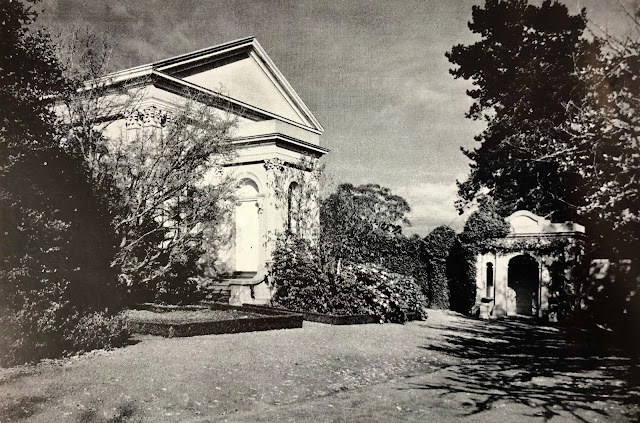No. 1291 - Zeehan - Kingdom Hall
Zeehan is a town on the west coast approximately 40 kilometres from Queenstown. As a mining town it became the administrative centre for a number of mining companies in the region. Zeehan was established in the early 1880s and by the turn of the 20th century it had become Tasmania's third largest town. Zeehan takes its name from Mount Zeehan which had been named by George Bass and Matthew Flinders after Abel Tasman's brig ‘Zeehaen’.
Zeehan's Kingdom Hall is located on Main Street. It is built in the style typical of most of the 21 Kingdom Halls established in Tasmania. No published information about the hall is available.
The Jehovah's Witness diverges from the mainstream doctrines of Christianity in that it is a non-trinitarian tradition. Jehovah's Witnesses believe their denomination is a restoration of first-century Christianity. The historical persecution of members of the Jehovah’s Witness in many countries, including Australia, has further contributed to the denomination maintaining a low profile in the media. For this reason the history of the Jehovah Witness in Tasmania presents a challenge to research.
The following information is derived from the Jehovah Witness’ official tract ''The Watchtower':
“In the early 1900s a member of the International Bible Students Association, as Jehovah's Witnesses were known, was distributing Bible study publications in Tasmania. Literature was left with the postmaster at Queenstown, Tom Anderson, and he and his wife became Witnesses. Around this time, E. Brewster preached around the state. In about 1908 Bible students were active in the Westbury area, and spread to the north-east of Tasmania. The Witnesses operated radio station 7UV in Ulverstone from 1934 to spread the Bible's message. In 1945 the Witnesses purchased their first Kingdom Hall (church) in Hobart".
Zeehan's Kingdom Hall is located on Main Street. It is built in the style typical of most of the 21 Kingdom Halls established in Tasmania. No published information about the hall is available.
The Jehovah's Witness diverges from the mainstream doctrines of Christianity in that it is a non-trinitarian tradition. Jehovah's Witnesses believe their denomination is a restoration of first-century Christianity. The historical persecution of members of the Jehovah’s Witness in many countries, including Australia, has further contributed to the denomination maintaining a low profile in the media. For this reason the history of the Jehovah Witness in Tasmania presents a challenge to research.
The following information is derived from the Jehovah Witness’ official tract ''The Watchtower':
“In the early 1900s a member of the International Bible Students Association, as Jehovah's Witnesses were known, was distributing Bible study publications in Tasmania. Literature was left with the postmaster at Queenstown, Tom Anderson, and he and his wife became Witnesses. Around this time, E. Brewster preached around the state. In about 1908 Bible students were active in the Westbury area, and spread to the north-east of Tasmania. The Witnesses operated radio station 7UV in Ulverstone from 1934 to spread the Bible's message. In 1945 the Witnesses purchased their first Kingdom Hall (church) in Hobart".




Comments
Post a Comment